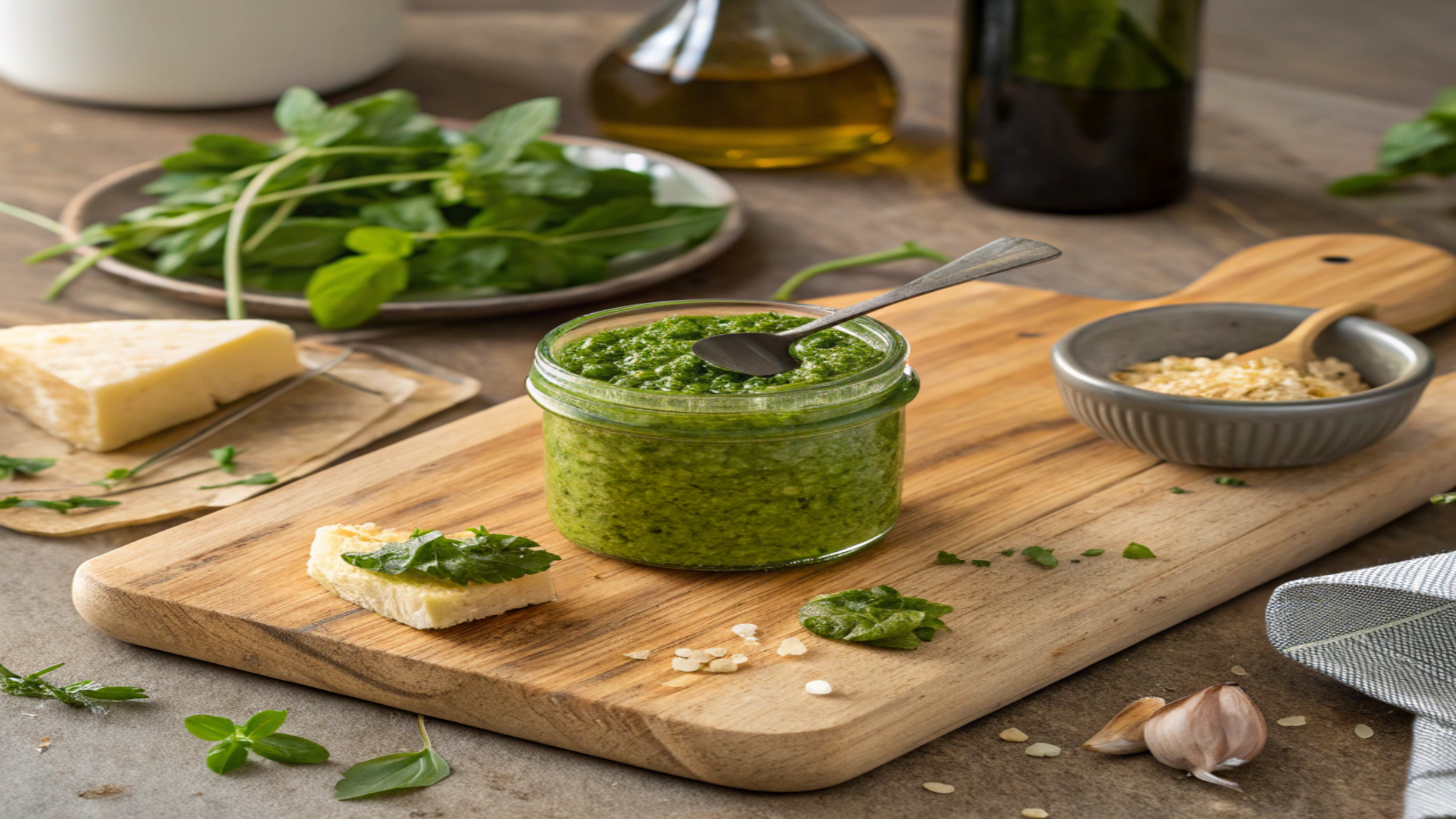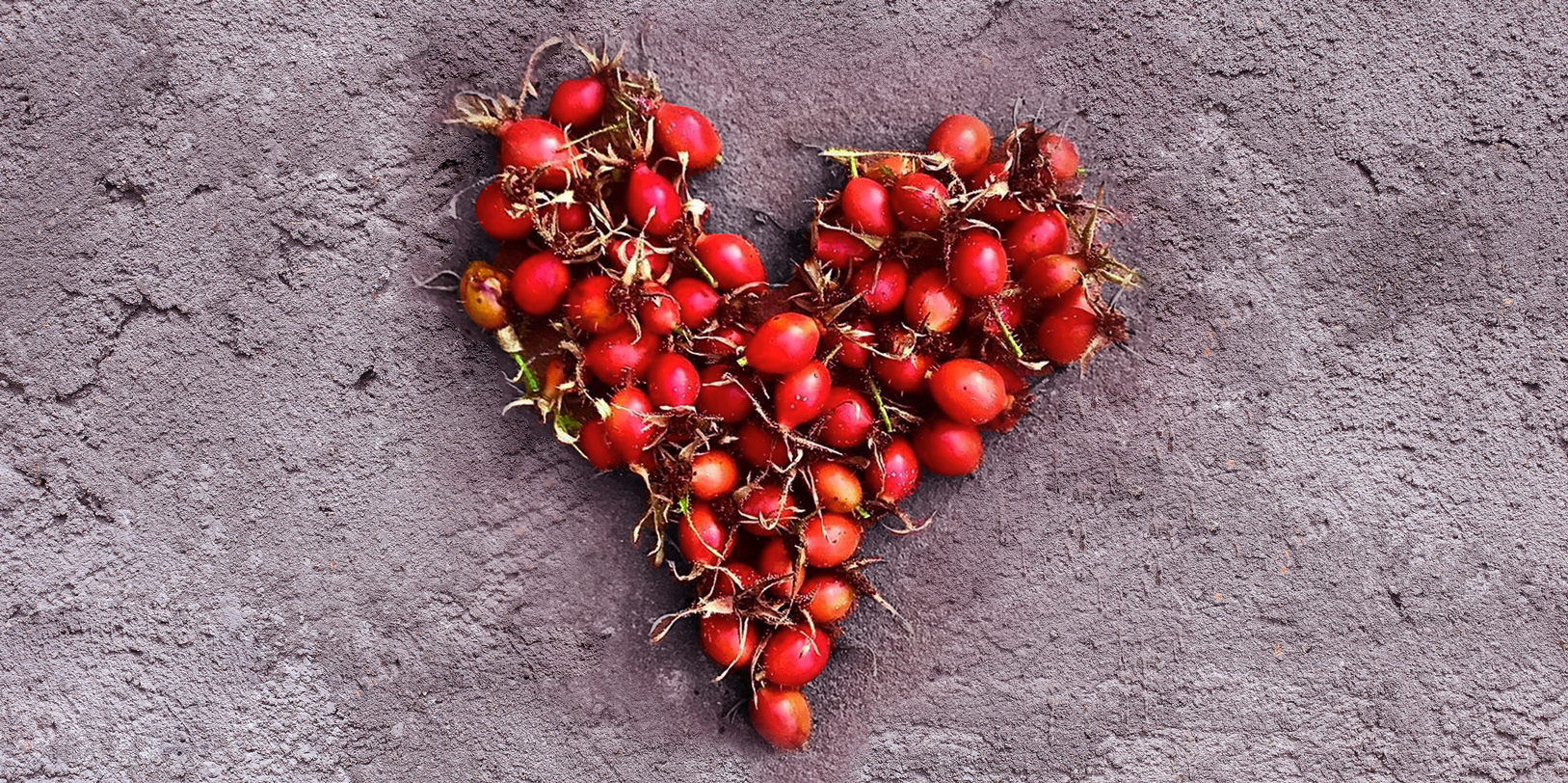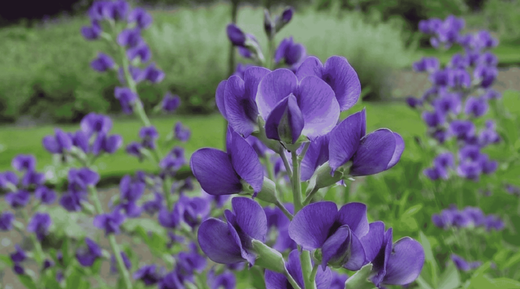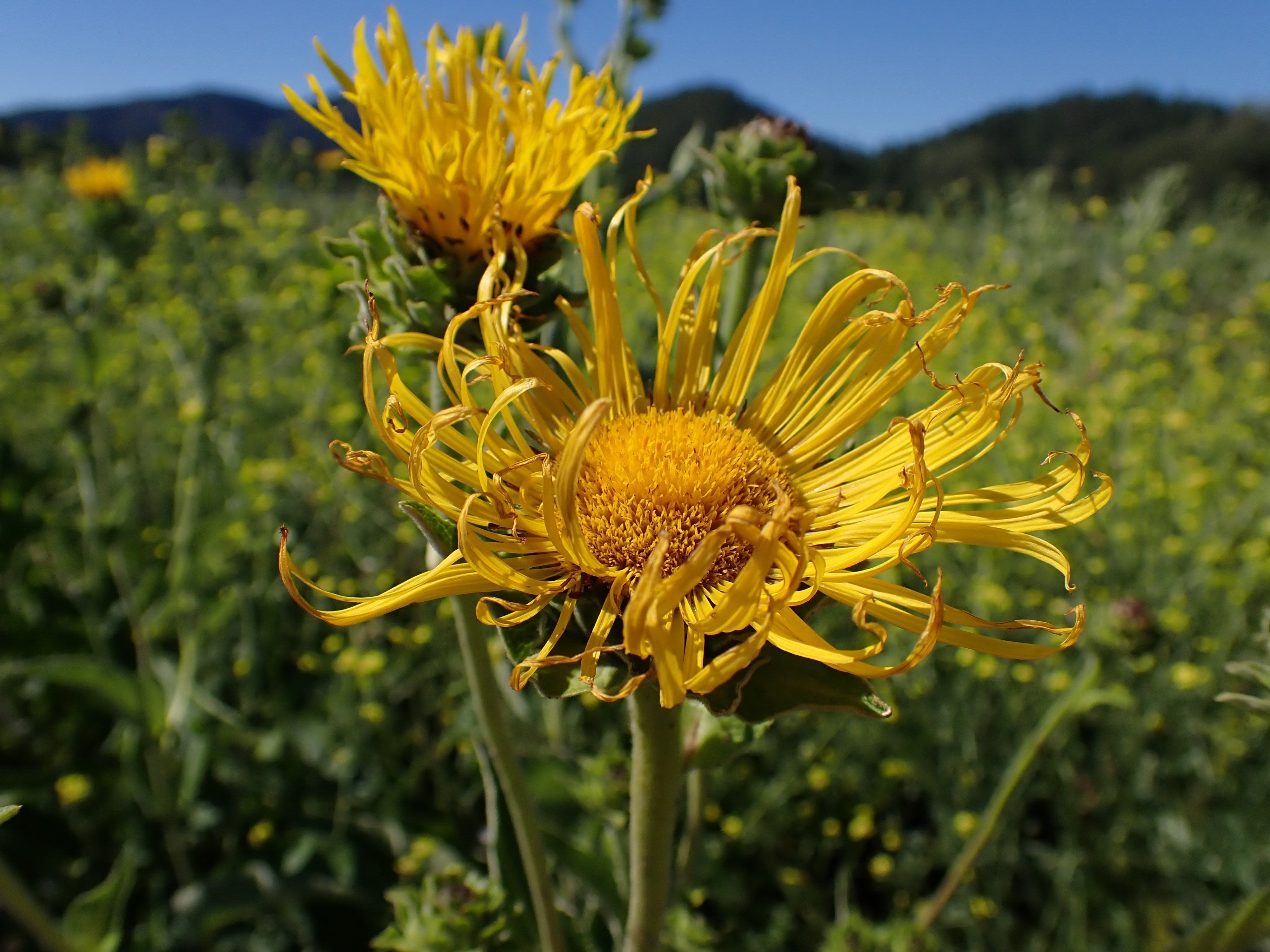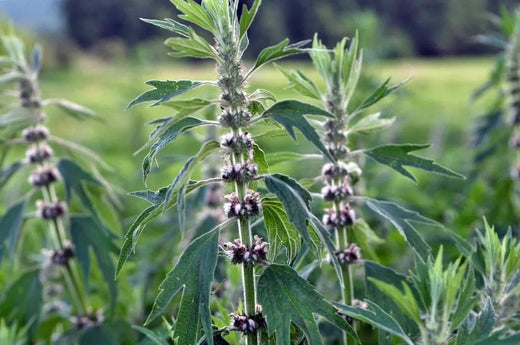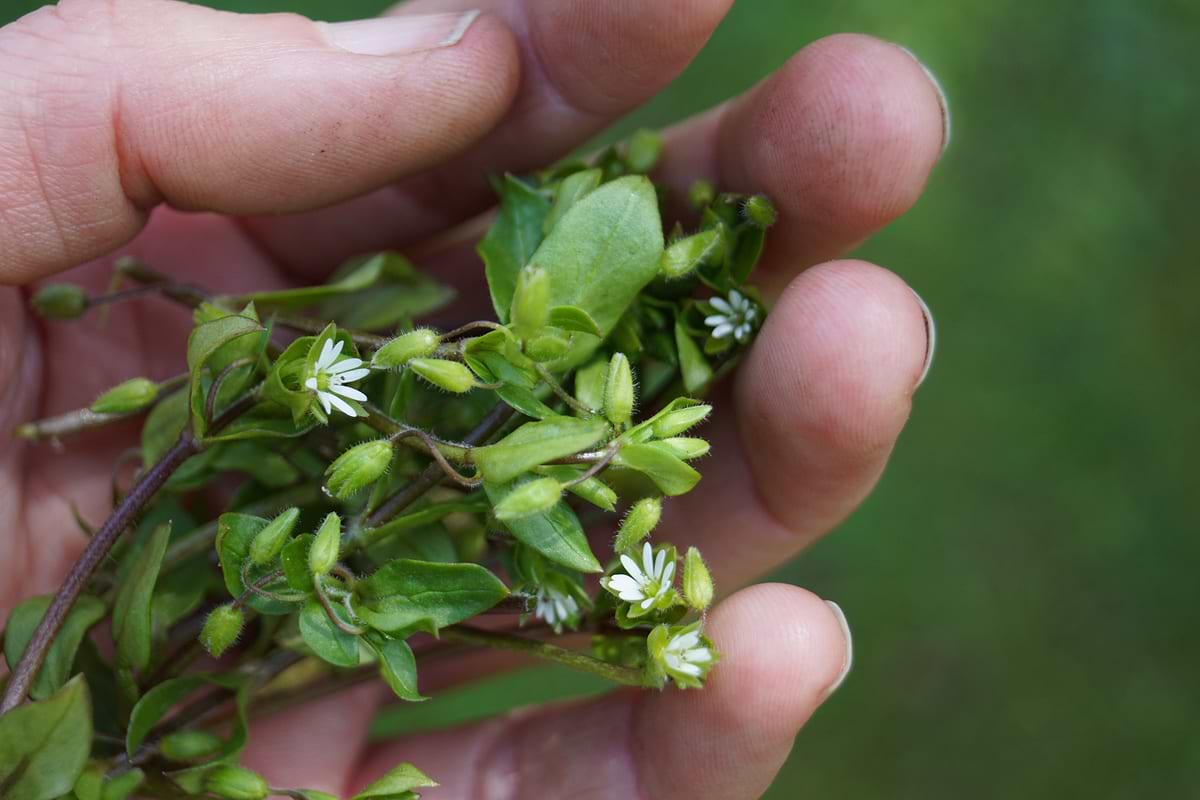
Chickweed Benefits for Skin, Digestion & Detox: A Common Plant with Powerful Perks
Written by Rebecca Younger, CH, CDShare
Ever walked past those delicate star-shaped plants in your yard and written them off as weeds? You might be stepping over one of nature's most underrated wellness allies. Meet chickweed (Stellaria media), the unassuming little plant that really delivers when it comes to supporting skin health, digestive health, and gentle detoxification.
While you've been pulling it from your garden, practitioners of traditional Chinese medicine and folk healers have been celebrating chickweed’s benefits for generations. With its impressive resume of vitamins, minerals, and healing compounds, this wild plant continues to surprise modern herbalists. It's the kind of common chickweed herb that makes you wonder what else you've been overlooking in your own backyard.
Chickweed's Essential Vitamins and Minerals
Chickweed looks delicate, but it’s packing a serious nutritional profile. Those tiny fresh chickweed leaves are loaded with vitamin C (about 375 mg per 100g), along with vitamins A and B, magnesium, iron, calcium, potassium, and zinc. Not bad for a plant most people consider a garden nuisance.
These nutrients work together to support multiple body systems. Calcium and magnesium help maintain strong bones and a calm nervous system, while potassium is crucial for steady heart rhythm and muscle function. Zinc and copper support immune health and cellular function, while vitamin C and beta carotene provide antioxidant activity and help protect against environmental stressors. Traditional healers have long turned to chickweed tea and topical applications to support immune resilience and promote skin health, especially when dealing with skin problems and inflamed skin. Chickweed’s naturally bioavailable nutrients mean your body can easily absorb and use what it’s getting.
Vital Nutrients for Modern Wellness
The real strength of the chickweed plant lies in its synergy of active compounds. Chickweed offers beta carotene, bioflavonoids, and beneficial fatty acids that serve as natural free radical scavengers. These compounds help support the body’s response to oxidative stress and environmental toxins. Bioflavonoids promote skin resilience, beta carotene converts into vitamin A for eye health and immune defense, and essential fatty acids support skin integrity, cardiovascular function, and joint health.
Chickweed has rightfully earned a place among selected wild edible plants for its nutritional density and versatility. Whether you consume chickweed tea, apply chickweed salve for topical use, or include fresh herb in your meals, this common plant provides gentle yet effective support for skin health and healthy digestion.
Natural Digestive Health and Metabolic Support
Your digestive system might have a new ally in chickweed. In traditional Chinese medicine, chickweed is used to cool and soothe irritated tissue, making it ideal for inflamed digestive systems and addressing upset stomach . Modern test tube studies show that chickweed extract contains bioactive compounds like saponins, triterpenes, and flavonoids that help support the body's natural inflammatory response. Chickweed tea made from fresh chickweed leaves offers a simple way to encourage digestive wellness and support healthy stomach acid production.
The cooling properties of chickweed are particularly helpful for calming the gut and promoting long-term digestive health. Chickweed helps support balanced gut function without the harshness of conventional digestive remedies. Its gentle action makes it suitable for daily use, whether taken as tea, a tincture, or included in food. Many herbalists find that fresh chickweed supports healthy digestion and provides lasting benefits for gastrointestinal balance.
Support for Detoxification and Lymphatic Flow
One of the lesser-known chickweed benefits is its ability to support detoxification through the lymphatic system. Chickweed is known to gently stimulate lymphatic movement, which helps maintain fluid balance and encourages the body’s natural waste removal process. This mild lymphagogue action helps reduce puffiness and can support healthy immune function through improved lymph flow.
For next-level lymph love and detox support, WishGarden’s Deep Cleanse formula features chickweed alongside other powerful herbs to support your lymphatic system, kidneys, and liver. Whether you’re feeling puffy, sluggish, or simply ready for a reset, this formula helps move stagnation and supports your body’s natural detoxification systems.
From Garden "Weed" to Kitchen Star
Chickweed isn't just an herbal remedy, but also a culinary gem. Also known as mouse-ear for its soft, rounded leaves, chickweed has been a favorite among foragers and wild food lovers for generations. Fresh chickweed leaves have a mild, slightly sweet flavor and a soft texture that pairs well with a wide variety of dishes.
You can toss fresh chickweed into salads, layer it into sandwiches or wraps, or blend it into chickweed pesto for a vibrant green twist. The herb’s natural cooling and drying effect makes it especially refreshing in summer meals. Beyond taste, incorporating chickweed into your diet is a practical way to support digestive health, skin resilience, and your overall nutrient intake.
Cooked Dishes and Chickweed Tea Therapeutic Infusions
Looking to get creative with chickweed in your kitchen? Here are some easy ways to use this wild plant while preserving its nutritional value.
- Sautéed Greens: Lightly cook fresh chickweed with garlic and olive oil for a nutrient-dense side dish that keeps its delicate flavor and beneficial properties intact.
- Herbal Pesto: Blend chickweed with olive oil, lemon, and pine nuts to create a fresh, mineral-rich sauce that pairs well with everything from pasta to grain bowls.
- Soup Enhancement: Add fresh chickweed to broth-based soups during the final minutes of cooking to boost flavor and nutritional value.
- Therapeutic Tea Preparation: Steep fresh or dried chickweed in hot (not boiling) water to create a soothing herbal infusion. Let the mixture sit for 10 to 15 minutes before straining. Chickweed tea supports healthy digestion and provides mild detoxification support when consumed regularly.
- Sandwich and Wrap Boost: Add a handful of fresh chickweed leaves to wraps and sandwiches for a mild, green boost without overpowering the other ingredients.
Chickweed Harvesting and Processing Methods
Before adding chickweed to your meals or wellness routine, it’s important to identify and harvest it properly. Look for Stellaria media in moist, partially shaded areas like garden beds, lawns, or woodland edges. Spring and fall are the best times to harvest fresh chickweed leaves, especially in the early morning when the plant’s moisture content is highest.
After harvesting, rinse the fresh herb under cool water to remove any dirt or insects. Gently pat it dry or let it air dry. For salads or fresh applications, store chickweed wrapped in a slightly damp paper towel in the fridge. To make chickweed extract or tincture, use the herb within 24 hours of harvest to maintain potency. For drying, lay the leaves and stems flat in a shaded, well-ventilated space at temperatures below 95°F to preserve vitamins and minerals.
If you're making a chickweed salve or topical oil infusion, be sure to use only clean, dry herb material. Proper preparation ensures both safety and effectiveness. As with any topical use, especially for those with known contact weed allergies or sensitive skin conditions, patch testing is recommended to avoid contact dermatitis or skin irritation.
Chickweed: Your Wild Ally for Whole-Body Wellness
Chickweed isn’t just a weed, it’s a wellness wonder! This common plant offers real, tangible support for skin health, digestive function, and detoxification without needing to rely on harsh or synthetic ingredients. Traditional herbalists understood this folk remedy long before modern science began catching up.
Whether you're drinking chickweed tea, cooking with fresh chickweed, applying chickweed salve for topical use, or exploring the benefits of chickweed extract, this humble herb continues to prove its worth. When used mindfully, chickweed helps support multiple systems in a gentle, balanced way and connects you to centuries of herbal healing wisdom.
Rebecca Younger is passionate about herbs and women's health. She aspires to plant seeds of inspiration within her community about plant medicine and healthier ways of life. She studied Herbal Medicine at Herbalism Roots in Denver and is a certified Doula through the Matrona Foundation. She is the Brand Communications Specialist at WishGarden Herbs.
For educational purposes only. This information has not been evaluated by the Food and Drug Administration. This information is not intended to diagnose, treat, cure, or prevent any disease, or to sell any product.






